btw, I suspect Keepa might have be one of the alternate spellings you registered?
Didn’t think of that. The .com is already in serious use (but not a competitor). The .org is not in use.
the freedom of the data is the critical concept, yet moreover the benefits that stem from that freedom.
.. then it misses the mark on that score as well.
Does it miss on that connotation? If it’s implied keeping it safe from Internet corporations who want to use our data to sell us to advertising and the gestapo State, then wouldn’t it also follow that the data is free from their monopolization?
However, I realize it’s an abstract linkage and most people tend to not think deeply about a name. Also the masses aren’t yet likely to think of the conspiratorial themes that dominate my thinking lately, because if they did we’d already be in chaos in the West. I tend to be a decade or more ahead of the mass realization of realities. Yet a more mainstream concern is that if I am thinking I want my data to have a caretaker so it doesn’t become censored or lose my access if so one attempts to hack my account (Facebook is well known here in the Philippines to lock people out of their own accounts if someone attempts to login from a different computer), then I’m also wanting my data to be more freely accessible by me (and possibly others).
I wonder if most Millennials have the same experience as I do with major Internet sites. For example, I seem to be nearly banned from Youtube. Every time I comment there, my comments will not be visible to others. Appears that Google has figured out by tracking my search history and my other patterns, that I am not a progressive and that I express strong views that may conflict with Google’s politics. For me that utterly unacceptable. But Millennials appear to be unfazed?
Essentially the antithesis of censorship is freedom-of-information (FOI).
Foinet? Not very compelling.
Perhaps open data is still the best name?
Descriptively, yes, perhaps so. But the thing is, it just seems too bland and uninspiring.
Agreed the intended meaning of openness is more explicit, but open data also misses the concept of permanence which caretaker more explicitly conveys.
Data is very important to Millennials. Why would they not care about their data? Their music, their photos, their freedom to wisecrack in a permissionless environment (e.g. 4chan), etc.
While I agree that data clearly is very important to Millennials, going by the evidence of my working environment (which consists of quite a few teens and twenties females), none of them seem very concerned about its privacy and safety; most having open access to their Facebook pages. Just recently when we were recruiting, they were trying to find dirt on the various applicants by scouring their profiles - not that uncommon an activity I suspect). What I'm saying is that there often seems to be a cavalier approach to security amongst those users who've never known a world without the internet.
You mean privacy not security. And I’m not even proposing to imply anything about privacy in the name.
But they appear to not be so aware that they really want openness of data. Yet I presume they’re aware that they hate when their own data becomes blocked, inaccessible or when a mobile app (such as contacts and messaging) doesn’t integrate with the existing data across several social networks. They do indeed very much demand open data.
In 2015, I did try to think of names that implied the interoperability of apps such as vibe, gears, hypermesh, and syncnet, but wasn’t able to come up with any great name.
Keeper in my mind is a concept of keeping (an archive of) our data available for us. That to me implies it is open when we desire it to be. Other sites obviously keep our data for us, so what would be different about Keeper? Obviously it must be keeping it when other sites lose it. The Keepa site is archiving Amazon price history long after it has changed.
I think a keeper of data history is a likely connotation users may have. That could be negative for some people though. In fact, that is a frank feature (disadvantage?) of blockchains — they never forget.
But if you want to restrict access you can encrypt and only allow some people to decrypt. And users would like their family photos to be perennial.
A user is likely to ponder eventually, “How can this site promise to keep my data forever when a corporation has an indefinite lifespan sustained by profit or donations?” They may either think this is a small lie analogous to Google’s original “Do No Evil”, or they may be curious what is the technological innovation which enables this implied promise.
So the Keeper name implies a blockchain. And a blockchain is open data.
I’m wondering if maybe we should have an alternative name Satyagraha (सत्याग्रह) for the site, especially for Indians. I have registered some of the domains.
So, broadly, "Truth Force"?
“The truth will set you free.”
What do you think of @johnnyflynn’s Yoda suggestion?
A smart, technology savvy Millennial provided this feedback:
Hm. I like keeper. It communicates privacy and resiliency. Hyperdata sounds technical, keeper sounds like a modern app.
I agree Keeper is more in the modern genre of naming. Interesting that he thinks it implies privacy. I agree Hyperdata sounds technical, which is why it won’t appeal to the masses.
In my other comment reply to @johnnflynn, I proposed another zany idea which is in also in the modern app genre but significantly more comical (i.e. seemingly less serious), fun, catchy, but risqué: Bleep.
There’s separate concerns (goals) we’re juggling with the naming:
- Meaning
- Audience (i.e. target demographics)
- Sui generis (also pizzazz, memorable, and grabbing attention)
Keeper fulfills all three concerns, but only moderately well. The meaning is not precise, but the implied meanings are moderately compelling. It’s reasonably unique and can be somewhat understood by wide audiences, but it doesn’t target any very strong need of any particular demographic. For example, I was watching a video of a Chinese woman explain that her entire life is motivated by how to earn more money. I think many Chinese have this goal and attitude. The implied meanings of Keeper will not appeal to their strongest need which is profit.
Examples of strongest needs for different Internet demographics:
- Productivity
- Entertainment
- Profit or employment
- Research and knowledge sharing
- Archiving and publishing
- Marketing and sales
- Engineering
- Disintermediation
Note Steemit has a bug that renders the following table chopped off on the right side (at least on my browser). Please click here to view it on busy.org where it’s displayed with a horizontal scroll bar.
| Name | Meaning | Demographics | Branding | Needs Targeted | Confusions |
|---|---|---|---|---|---|
| Hyperdata | data interoperability | geeks | serious high-tech | engineering productivity | hypertext related |
| Keeper | privacy archival | power users | protection | archiving and publishing | anti-virus |
| Bleep (or Bleeep) | bloopers censored information | the curious dissidents, rebels | humorous rebellious | entertainment disintermediation | beep sound |
| Boonus | cooperative investment cornucopia (of ROI) | opportunists evangelists | profiteering | Profit or employment marketing and sales disintermediation | MLM scam booing |
| Oodles | cornucopia (of content) | the unfocused aimless low time preference | time wasting | entertainment | noodles poodles |
| Uncommons | eclectic | seekers epistemophiles connoisseurs | curated, esoterica | research and knowledge sharing | elitist |
The chart above attempts to be honest about the perceptions that people will have, which may be different than my intention when I was brainstorming those names. For example, Boonus, Oodles and Uncommons are my attempt to capture the concept of the inverse commons aka as the cornucopia-of-the-commons as opposed to the tragedy-of-the-commons or the more generalized comedy-of-the-commons. Juice (aka @traincarswreck) wrote about “Bitcoin IS an inverse commons” after I introduced him to the concept. For example, Boonus implicitly captures the important thin protocol model, in that the value of the decentralized commons protocol grows as everyone participates and invests. Decentralization by definition (if it can be achieved) ameliorates the capability of any party to monopolize the commons.
Unlike a tragedy-of-the-commons wherein the common resource becomes degraded by overprovisioning, the resource(s) in an inverse commons become enriched by increased usage!
The domains uncommons.com, oodles.net and bleepr.com are offered for sale at the prices $19k, $29k and $5k respectively. The domain boonus.com is offered for sale at an unspecified price.
I like the following names for the following purposes:
| Name | Purpose |
|---|---|
cred | major token unit, e.g BTC |
blips  | minor token unit, e.g satoshis |
| Hyperdata | decentralized ledger technology project |
| Boonus | onboarding face of project signup and DAPPs portal |
| Bleeep | discussion and debate DAPP |
| Keeper | cloud storage and file sharing DAPP |
| Uncommons | decentralized wikipedia and blogging DAPP |
| Oodles | games, videos, music DAPP |
Boonus is far superior (brandable, memorable, interesting) to the prior idea Cha-ching.
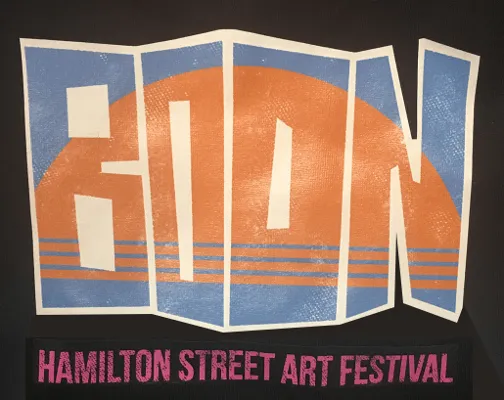

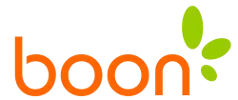
Bleeep is far superior (brandable, one syllable, memorable, interesting) to the prior ideas on this blog such as Candid, Unscripted, Uncaged, Unglued, Airout, and Uncensored. It expresses something about censorship better than Jot, Lucid, Gist, Grok, and Illume.

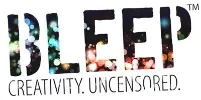
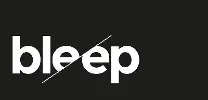
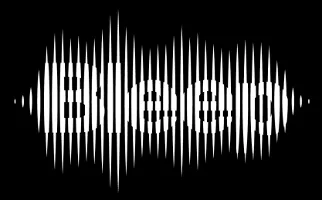
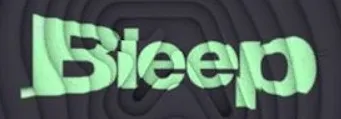
Keeper is superior to Stor and Anarchive, because it speaks to some protective benefits and distinguishes from a retail store. And it connotes archival more so than Oasis.
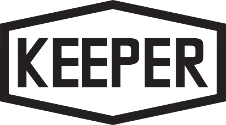
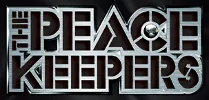


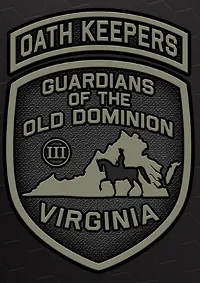
Uncommons is has more meaning and is more serious than Knol, Knugget and Ourpedia.







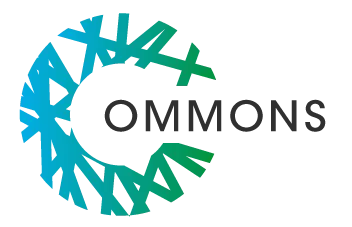

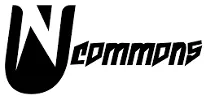
It’s not entirely clear to me that Oodles is superior to the prior ideas for specific media types: Immortal, Recorded, Trove, Jambox and Funkybit. Immortal may be better for games. Recorded, Jambox or Funkybit may be better for music. Oodles is more generic which is probably better so we don’t need to proliferate names for each media type. A disadvantage with Trove is there’s already a site Trovit that was reasonably well known. Oodles seems to be more memorable (just remember noodles). The double Oo captures the eye.


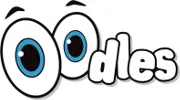
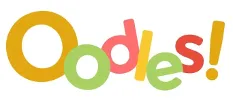
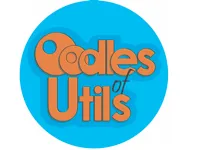
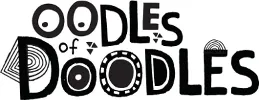
RE: Name YOUR decentralized social network?